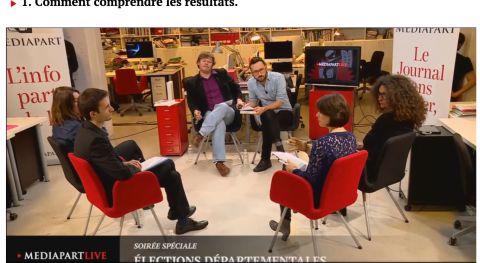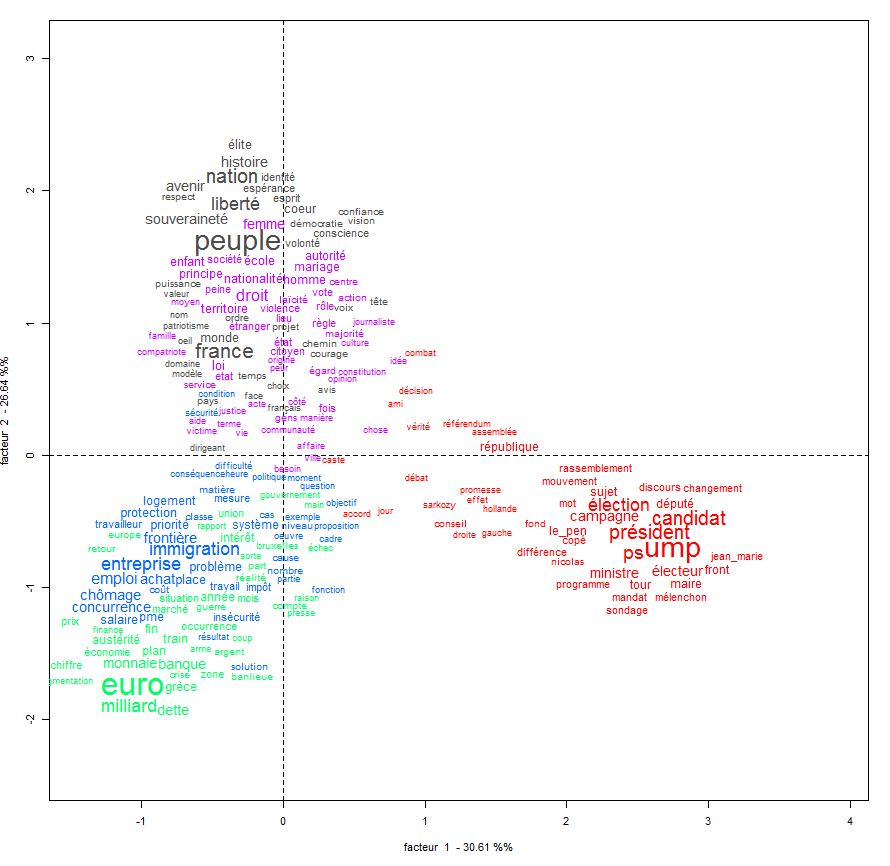
On March 22, the National Front arrived second with 25,2 % of the votes in the nation-wide local elections for departmental councelors-- a historic high for local elections.
Here are a few elements to put these results -- and what they mean for the future of the radical right party-- into perspective.
1) Two videos with scholars Nonna Mayer (Sciences Po Paris), Fabien Escalona (Sciences Po Grenoble), Valerie Ignounet, Cecile Alduy (Stanford) and Mediapart journalist Ellen Salvi to discuss live the results as they were arriving on elections nihgt;
2) Some thoughts on what it means to "grow roots" locally for the National Front and how it succeeded to do so in an interview for Libération.
"Longtemps peu soucieux de son implantation locale, le FN poursuit désormais une stratégie d’enracinement à marche forcée. Un processus qu’accompagnent des variations dans son discours et sa symbolique, en fonction des publics et des territoires. Professeur à l’université de Stanford, membre de l’Observatoire des radicalités politiques (ORAP) de la Fondation Jean-Jaurès, Cécile Alduy s’est spécialisée dans l’analyse de la «langue» frontiste [...]"
3) An Op Ed in Al JAzeera America on the "new normal" of a National Front at 25%.
My latest Op Ed on France's Elections: The bigger question is not how many vote for the NF, but how many think the same way. Ideological victories can more toxic than electoral ones.
"Last Sunday night, two dozen journalists from the left-leaning online newspaper Mediapart were anxiously watching the returns from France’s first round of local elections. I joined them as an observer in their bare-bone industrial loft in the 12th Arrondissement of Paris that serves as their base. At 8 p.m. sharp, everyone fell silent, riveted, as colored rectangles started to stretch across the TV screen to represent the vote totals of the various tickets.
Then a sigh of relief: Public television channel France 2 was reporting that the far-right National Front (FN) came in third. All at once, everyone began talking, typing, throwing out bits of their analysis. Things were not as bad as feared! The FN failed once again to become the “first party of France,” as party leader Marine Le Pen had been promising it would since she finished first in last May’s European Parliament elections.
Then everyone fell silent and exchanged guilty looks: How on earth could a National Front at 25 percent (or 5.1 million voters) be considered good news?..."

